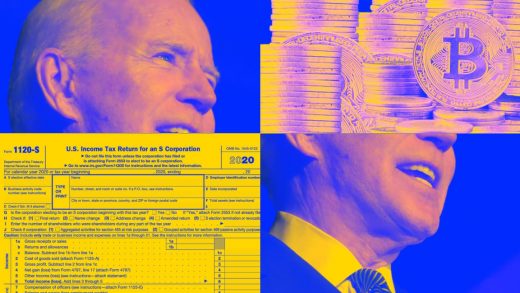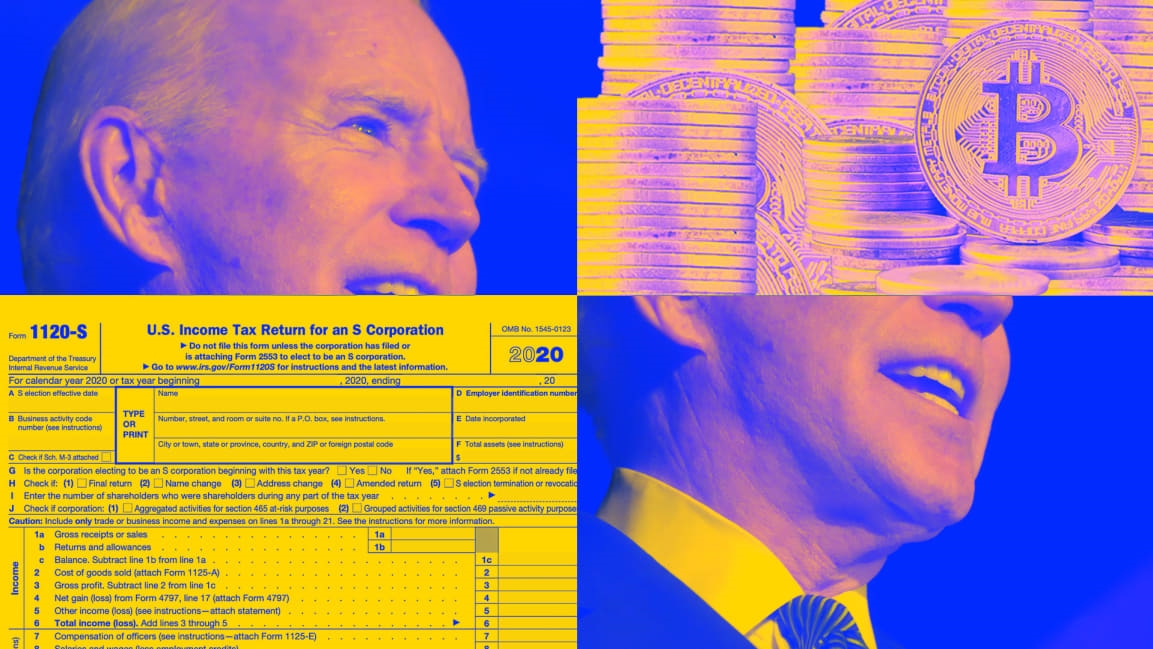IRS reporting requirement: Why crypto and NFT fans are worried about the infrastructure bill
The $1.2 trillion infrastructure bill, which is on its way to President Biden’s desk, includes provisions to fund everything from new roads to improved broadband connections, but it also includes tax reporting provisions that people and organizations in the cryptocurrency and NFT worlds are concerned could stifle transactions.
Existing tax law, in a section of the U.S. tax code called 6050I, requires that people who receive more than $10,000 in cash and equivalents (like cashier’s checks and money orders) in many business transactions file a report with the Internal Revenue Service (IRS), including details about who paid them—such as names and Social Security numbers—or potentially face felony charges. The new law expands the definition of cash to include “digital assets” and comes as governments around the world grapple with the rapid rise of crypto and the potential for its use in money laundering. Critics worry the new provision could force participants in crypto transactions and NFT trades, which are often anonymous, to have to disclose information about the people they’re doing business with, which they simply might not have.
“Miners, stakers, lenders, decentralized application and marketplace users, traders, businesses, and individuals are all at risk of being subject to this reporting requirement, even though in most situations the person or entity in receipt is not in the position to report the required information,” warned attorney Abraham Sutherland, an adjunct professor at the University of Virginia School of Law and advisor to the Proof of Stake Alliance, an industry group, in a September report.
Decentralized finance, or defi, operations, where automated smart contracts essentially provide financial services, could also be affected by the provision, warn people in the industry.
“This 6050I provision in the infrastructure bill seems like a disaster if I understand it,” said Coinbase CEO Brian Armstrong in a tweet. “Criminal felony statute that could freeze a lot of healthy crypto behavior (like Defi).”
The new law also contains a provision that would expand the definition of “broker” under the law to include cryptocurrency brokers, which some in the industry—including a group called the Crypto Council for Innovation—have feared would rope in coin miners and developers involved in building and maintaining crypto systems. Brokers are also required to report many transactions to the IRS.
Bloomberg reported earlier this year that the Treasury Department, which is ultimately responsible for putting out regulations saying how the new provisions will actually work in practice, is likely to exempt organizations and people that aren’t brokers in the usual sense. Since getting the law itself amended seems difficult with a fiercely divided Congress, it’s likely that the Treasury Department will see furious lobbying by the crypto industry to make sure it doesn’t interfere too much with their operations.
(33)



